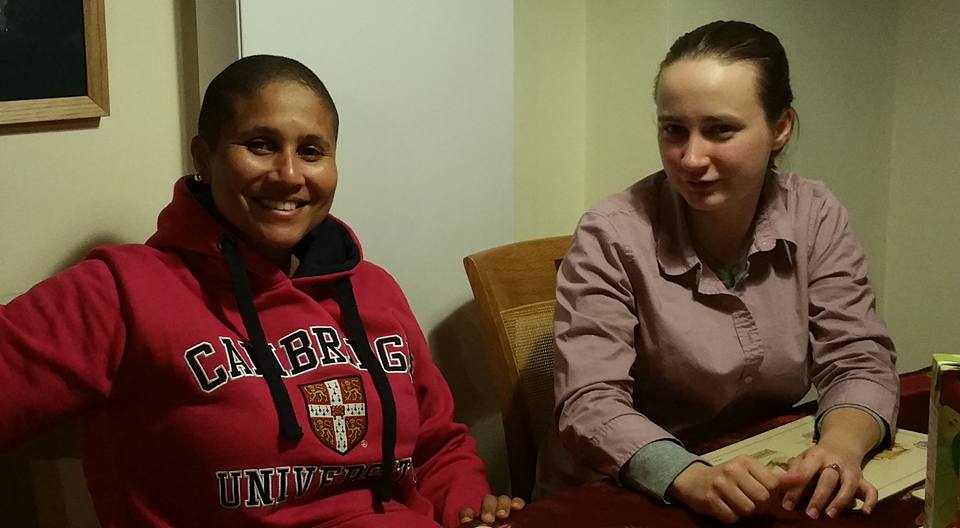Juliet Windvogel, a student of Seth Mokitimi Methodist Seminary in Pietermaritzburg in South Africa undertook independent study at Wesley House during the 2015-2016 academic year.
I became a student at Wesley House in Cambridge during February – July 2016, through the generous sponsorship of a SALT Scholarship and of the Seminary, Seth Mokitimi Methodist Seminary in Pietermaritzburg in South Africa.
Firstly, the whole cross cultural experience was somewhat, scary; yet so rewarding in many ways. I became aware of local politics and being from South Africa, race politics in particular is something that scares us, till today. However, being at Wesley House was somehow a shield both academically and spiritually. The environment that is created there for students from abroad is very welcoming and stimulating to cultivate a space for personal growth and academic interaction, whether one chooses to engage in local politics, religiosity or social activities. That, in my opinion, is rejuvenating when one can use your own cultural background and contextualize all the local “drama” to how you would have reacted, theologically and politically back home.
Secondly, the scholarly environment and opportunities created in the Thursday night Wesley Studies slot was very uplifting. With different speakers elaborating on their expert field in Wesleyan Methodism, which was an opportune space for all to engage and be part of the conversation. It was especially challenging for me in that we had different Conferences present, meaning; there were a vast pot of Wesleyanism brewed right there at Wesley House. And we could dish and be dished from which, created that inter-dialoguing environment, which I believe, taught me much.
Lastly, my research was on identity studies, from a Coloured South African perspective. With that said, I had an opportunity, like all other students to present a short presentation on the topic. It (the presentation) freaked me out. I am not an English speaking person, and to sit with a room full of Oxford Dictionaries (lolest), was quite frightening, but it challenged me to be myself and simply do what was expected of me. However, because of how we grew up in South Africa, race is and will always be a sensitive issue however, I choose to reimagine a positive notion of being (a) Coloured in South Africa, whereby I used different methodologies and frameworks such as ‘Metissage’ from Kate Coleman and ‘Catharsis’ from Mary Douglas (1966). Is a different humanness possible in Post-Apartheid South Africa for Coloured people? Well, it was at Wesley House in Cambridge where I realise how important being human in today’s life was, expressed by the embracing of one’s cultural backgrounds and the blending of different spiritualties as well as inter faith relations being nurtured amongst other things.
I doubt any of the above could have been possible without the generous support of the SALT Scholarship which afforded me an opportunity to meet and work with some of the great minds of Wesley Studies and the British Methodist Church, in the United Kingdom.
This was a short reflection on what real life was like for a real student at Wesley house, however, the actual experience and the life changing moments can never be penned down, as it is being used as critical tools to change my ministry as I journey and continue to discover and rediscover the deeper truths of the God of all creation, in all places and spaces. It was an experience I will never forget.




